Press Release: Coastal Roots Farm Opens its Farm Stand in Encinitas
For Immediate Release:
Coastal Roots Farm Opens its Farm Stand in Encinitas to Make Fresh Produce Available to All
A new social enterprise makes high quality biodynamically-grown produce available to people of all income levels.
 ENCINITAS – August 9th, 2016 – Coastal Roots Farm has opened the doors to its Farm Stand, making its locally grown, high-quality produce available for purchase for the first time to the wider public.
ENCINITAS – August 9th, 2016 – Coastal Roots Farm has opened the doors to its Farm Stand, making its locally grown, high-quality produce available for purchase for the first time to the wider public.
“We are so excited to share this amazing locally-grown produce with our community,” said Daron ‘Farmer D’ Joffe, Director of Agricultural Innovation and Development at Leichtag Foundation, and Founding Director of Coastal Roots Farm. “At our Farm Stand, no one should feel priced out of buying fresh food for themselves or their families.”
The Farm Stand is a new social enterprise that will support the Farm’s mission to ensure that everyone in our community has fair and equal access to local, sustainable food grown using only biodynamic and organic processes. It’s current hours of operation are every Thursday from 4-7pm. The Farm Stand is located at 441 Saxony Road in Encinitas.
By buying produce from the Farm Stand, customers leverage their purchasing power to directly support education and sustenance for the community. All proceeds from the Farm Stand support the Farm’s vision to reduce food and nutrition insecurity in the North County San Diego area, support vibrant Jewish connection and provide hands-on, experiential learning opportunities for people of all ages and backgrounds in the areas of farming, gardening, environmental stewardship and Jewish tradition.
The farm currently donates over 50% of its harvests to local food banks and community organizations, such as Community Resource Center (Encinitas), St. Andrew’s Episcopal Church (Encinitas), and to Jewish Family Service of San Diego’s Food Distribution at Camp Pendleton, through the Hand Up Youth Food Pantry program. Since becoming an independent nonprofit in early 2016, Coastal Roots Farm has donated tens of thousands of produce into the North County community.
In addition, the Farm Stand accepts Electronic Benefit Cards for food stamps (EBT) and is piloting an alternative, “pay what you can” system for produce sales.
“Our goal is to share our food with those who need it most,” said Farmer D. “The Farm Stand is one of the many ways we plan on accomplishing that.”
###
Media Contacts:
Joshua Sherman
Communications & Creative Manager
joshua [at] leichtag.org
Leichtag Foundation
760-479-6495
About Coastal Roots Farm:
Coastal Roots Farm is an independent nonprofit organization which helps foster a vibrant, healthy North County, support diverse Jewish engagement and address gaps in the local food system. The Leichtag Foundation established Coastal Roots Farm in response to North County residents’ interest in sustainability and social justice, and to the high number of low-income households currently lacking regular access to fresh, healthy food. A variety of funders and partners make this vital work possible.
To learn more about the Farm Stand and Coastal Roots Farm overall, please visit coastalrootsfarm.org and follow the farm on Facebook.



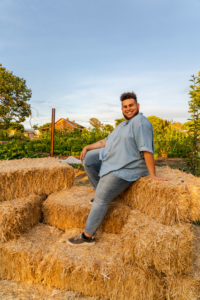 Black, Jewish and Queer. These three identities weave the fabric of who I am, but it took a long time to believe that they could exist together.
Black, Jewish and Queer. These three identities weave the fabric of who I am, but it took a long time to believe that they could exist together.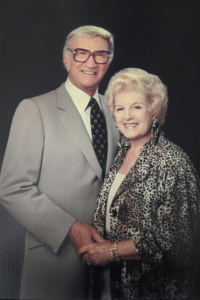 Lee and Toni Leichtag established the Leichtag Foundation in 1991 following the sale of their business. Lee and Toni were lifelong entrepreneurs with a passion for innovation and for supporting talent. They believed that only with big risk comes big reward. Both born to families in poverty, Toni to a single mother, they strongly believed in helping those most in need and most vulnerable in our community. While they supported many causes, their strongest support was for young children and the elderly, two demographics who particularly lack voice in our society.
Lee and Toni Leichtag established the Leichtag Foundation in 1991 following the sale of their business. Lee and Toni were lifelong entrepreneurs with a passion for innovation and for supporting talent. They believed that only with big risk comes big reward. Both born to families in poverty, Toni to a single mother, they strongly believed in helping those most in need and most vulnerable in our community. While they supported many causes, their strongest support was for young children and the elderly, two demographics who particularly lack voice in our society. Lifelong Baltimoreans, Rabbi George and Alison Wielechowski and their sons, 11-year-old Lennon and 9-year-old Gideon, are more than pursuing the good life in Southern California. Having moved to San Diego more than three years ago, they are fulfilling a lifelong dream.
Lifelong Baltimoreans, Rabbi George and Alison Wielechowski and their sons, 11-year-old Lennon and 9-year-old Gideon, are more than pursuing the good life in Southern California. Having moved to San Diego more than three years ago, they are fulfilling a lifelong dream.
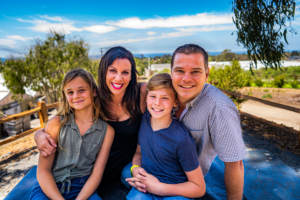
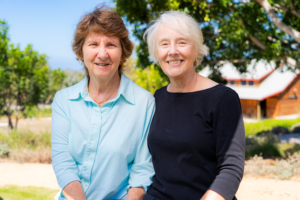

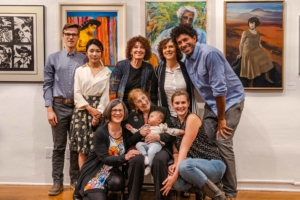
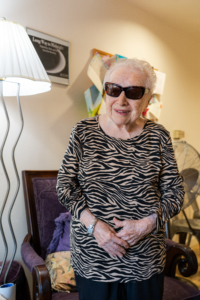
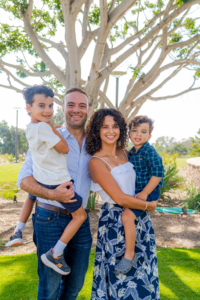
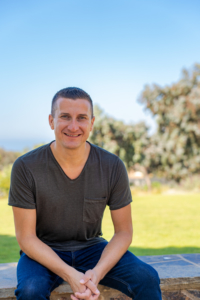 You would think that as the executive director of San Diego LGBT Pride, Fernando Zweifach López Jr., who uses the pronoun they, has done all the coming out they possibly can. A queer, non-binary individual who has worked for many years on civil rights issues, López also speaks openly and often about their father’s family, Mexican-American migrant workers who tilled the fields of rural California.
You would think that as the executive director of San Diego LGBT Pride, Fernando Zweifach López Jr., who uses the pronoun they, has done all the coming out they possibly can. A queer, non-binary individual who has worked for many years on civil rights issues, López also speaks openly and often about their father’s family, Mexican-American migrant workers who tilled the fields of rural California. Stacie and Jeff Cook understand commitment. They live it.
Stacie and Jeff Cook understand commitment. They live it.
